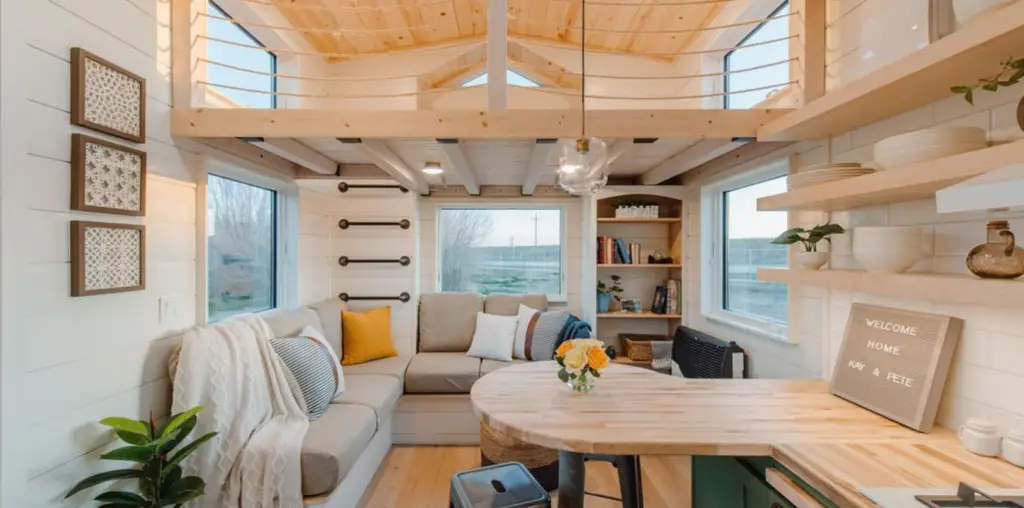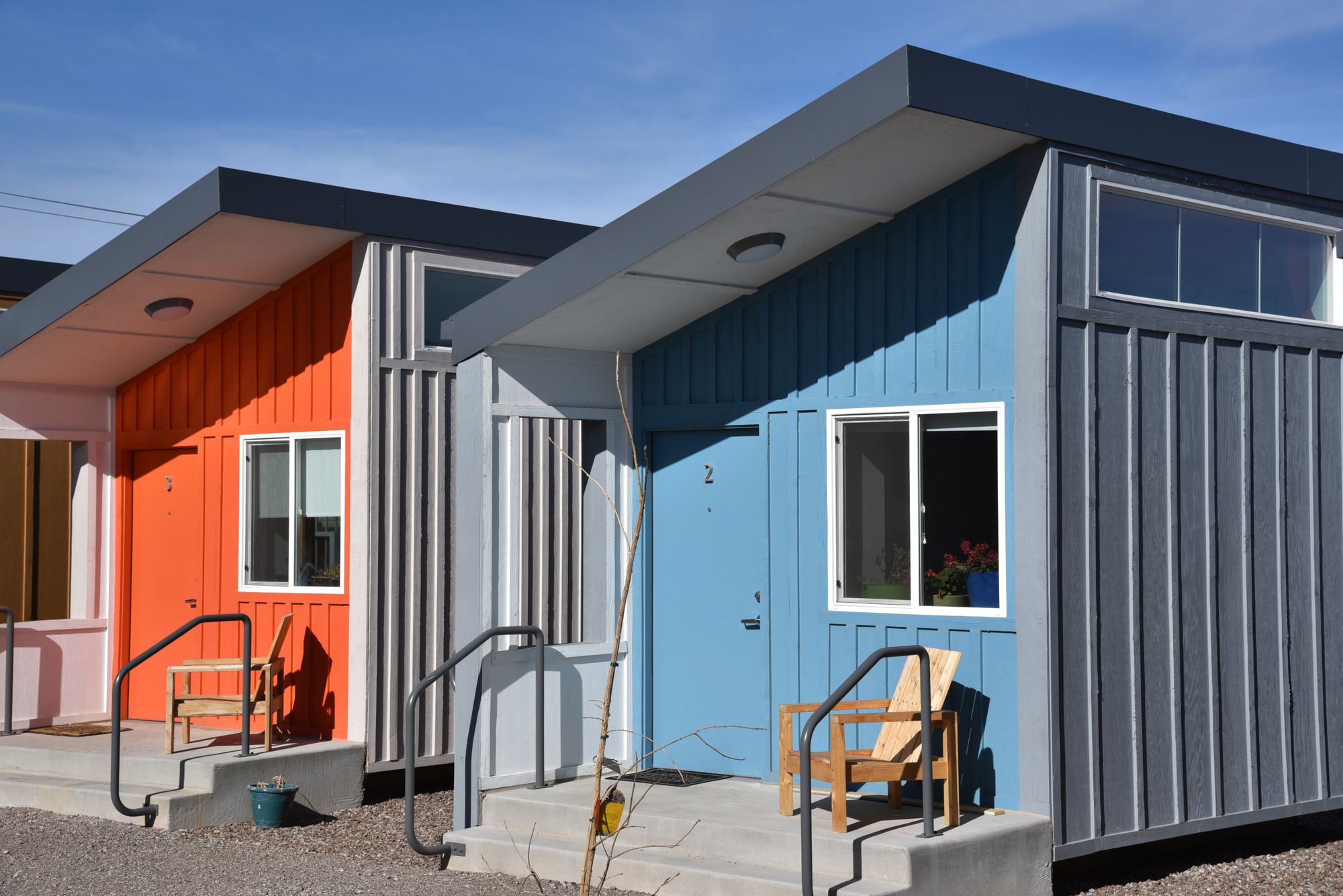Have you ever considered living in a tiny home? If you’re a Delaware resident, you might be wondering if tiny homes are even allowed in the state. Well, the answer to your question is here: this article will provide all the information you need to know about the legality of tiny homes in Delaware. Whether you’re curious about zoning regulations, building codes, or the potential challenges you may face, read on to discover everything you need to know about tiny homes in the First State.

Overview of Tiny Homes
Tiny homes have become a popular housing trend across the country, offering a more affordable and minimalist way of living. These compact and efficient dwellings are typically less than 500 square feet in size and provide an alternative to traditional larger homes. If you’re considering building or living in a tiny home in Delaware, it’s important to understand the relevant building and zoning regulations, as well as the various types of tiny homes available.
Building and Zoning Regulations
Building Codes
Before constructing a tiny home in Delaware, you’ll need to familiarize yourself with the state’s building codes. These codes are in place to ensure the safety and integrity of the structure. While there may not be specific building codes for tiny homes, it’s essential to follow the regulations applicable to residential buildings. This includes guidelines for electrical, plumbing, and structural components of the home.
Zoning Laws
In addition to building codes, zoning laws also play a crucial role in determining where and how tiny homes can be placed. Zoning laws vary across different municipalities in Delaware, so it’s important to research the specific regulations within the area you plan to build or park your tiny home. Zoning laws govern land use, density, setbacks, and other factors that may restrict or permit the placement of tiny homes.
Permitting Process
To ensure compliance with building codes and zoning laws, you’ll need to obtain the necessary permits before starting the construction of your tiny home. The permitting process in Delaware typically involves submitting plans, paying fees, and undergoing inspections to ensure the structure meets safety standards. It’s important to work closely with local building departments to determine the specific requirements and obtain the appropriate permits for your tiny home project.
Minimum Square Footage Requirements
Residential Building Code
While tiny homes are known for their small size, there are still minimum square footage requirements to consider. The residential building code in Delaware may stipulate a minimum square footage for dwellings, which could pose a challenge for those looking to build a tiny home. Researching the specific requirements in the area you plan to build can help you determine whether your tiny home meets the minimum square footage requirement.
Accessory Dwelling Units (ADUs)
One potential workaround for minimum square footage requirements is to build a tiny home as an accessory dwelling unit (ADU). ADUs are secondary dwellings that are located on the same property as the main residence. These units are often subject to different regulations and may have more flexibility in terms of size and zoning requirements. If your tiny home is intended to serve as an ADU, it’s important to understand the specific regulations governing these types of dwellings in Delaware.
Types of Tiny Homes
Tiny Houses on Wheels (THOWs)
One of the most popular types of tiny homes is the tiny house on wheels (THOW). These homes are built on a trailer, allowing for portability and flexibility in terms of where they can be placed. THOWs are often classified as recreational vehicles (RVs) and may fall under different regulations than permanent dwellings. However, it’s important to note that parking or living in a THOW on private property may still be subject to zoning laws and local regulations.
Tiny Houses on Foundations
Another option for tiny homes in Delaware is to build on a permanent foundation. These structures are similar to traditional homes in terms of their construction and may have more flexibility when it comes to zoning and building regulations. Tiny houses on foundations can blend seamlessly into existing residential areas and may be subject to the same regulations as other residential buildings. However, it’s essential to ensure compliance with building codes and obtain the necessary permits.

Tiny Home Communities
Legal Limitations
Tiny home communities, where multiple tiny homes are clustered together, offer a sense of community and shared resources. However, establishing these communities can be challenging due to legal limitations. Zoning laws and building codes may restrict the establishment of tiny home communities in certain areas of Delaware, making it difficult to find suitable locations for these communities. It’s important to research and understand the specific regulations within your desired area before attempting to create or join a tiny home community.
Land Use and Zoning
When planning to establish a tiny home community, it’s crucial to consider the land use and zoning regulations of the area. Zoning laws determine the allowed use and density of a particular piece of land, which may impact the feasibility of a tiny home community. Additionally, considerations such as access to utilities, infrastructure requirements, and environmental impact assessments may also play a role in determining the suitability of a location for a tiny home community.
Potential Challenges and Considerations
Infrastructure Requirements
One of the challenges that may arise when owning or building a tiny home in Delaware is ensuring access to necessary infrastructure. Tiny homes typically require connections to electricity, water, and sewer systems. It’s important to consider the availability of these utilities, as well as any associated costs, when determining the feasibility of living in a certain location or establishing a tiny home community.
Utilities
Another consideration when it comes to tiny homes is the availability and cost of utilities. Some areas may have restrictions or regulations that limit access to certain utilities for tiny homes. Researching the specific utility requirements in the area you plan to build or park your tiny home can help you understand the potential challenges and ensure you have access to the necessary resources.
Environmental Impact
Living in a tiny home promotes sustainability and minimalism, but it’s important to consider the environmental impact of these dwellings. Depending on the materials used and the energy efficiency of the home, tiny homes can have varying levels of environmental impact. It’s important to prioritize eco-friendly building practices and consider the long-term sustainability of your tiny home.

Tiny Home Advocacy and Organizations
Tiny House Delaware
Tiny House Delaware is a local organization dedicated to promoting education, advocacy, and support for tiny home living in Delaware. They provide resources and information on building codes, zoning, and community development for tiny homes. By joining this organization, you can connect with other like-minded individuals and stay informed about the latest developments in the tiny home movement.
Tiny House Industry Association
The Tiny House Industry Association is a national organization that advocates for the interests of tiny home builders and enthusiasts. They provide information on current legislation, building standards, and resources for those interested in the tiny home movement. By becoming a member of this association, you can gain access to a network of industry professionals and stay updated on the latest industry news and events.
Current and Proposed Legislation
Existing Laws and Regulations
Delaware currently has various laws and regulations in place that may affect the construction and placement of tiny homes. These include building codes, zoning laws, and minimum square footage requirements. It’s important to research and understand the existing legislation specific to the area you plan to build or park your tiny home to ensure compliance with the law.
Proposed Changes and Amendments
As the popularity of tiny homes continues to grow, there may be proposed changes and amendments to existing legislation in Delaware. These changes may aim to provide more flexibility and support for those interested in tiny home living. Staying informed about upcoming legislation can help you anticipate any future changes that may impact your tiny home project.

Case Studies
Successful Tiny Home Projects in Delaware
Delaware has seen successful examples of tiny home projects that have overcome the challenges of building and zoning regulations. These case studies can provide inspiration and guidance for individuals interested in pursuing their own tiny home projects. By examining the successes and strategies employed by others, you can gain valuable insights into navigating the unique landscape of tiny home living in Delaware.
Resources and Support
Local Government Offices
When it comes to understanding and complying with building codes, zoning laws, and permitting requirements, local government offices can be invaluable resources. Contacting the relevant offices, such as the building department and zoning department, can provide you with the information and guidance needed to ensure a smooth process for your tiny home project.
Builders and Manufacturers
Working with experienced builders and manufacturers who specialize in tiny homes can provide invaluable support throughout the construction process. These professionals have the knowledge and expertise to navigate building codes and create compliant structures. Researching and connecting with reputable builders and manufacturers can help ensure the successful completion of your tiny home.
Legal Consultants
Navigating the legal landscape of tiny home living in Delaware may require the guidance of legal consultants. These professionals specialize in zoning and land use regulations and can provide personalized advice and assistance tailored to your unique situation. Consulting with a legal professional can help you understand the legal implications and limitations of building and living in a tiny home.
In conclusion, while tiny homes offer an appealing and alternative housing option in Delaware, it’s crucial to understand and navigate the relevant building and zoning regulations. By familiarizing yourself with the various types of tiny homes, minimum square footage requirements, and potential challenges, you can make informed decisions regarding your tiny home project. Seeking support from advocacy organizations, staying informed about current and proposed legislation, and utilizing available resources can help ensure a successful and compliant journey into tiny home living in Delaware.


